I’m on Mastodon
I’m on Mastodon now, you can find me there @pixeltracker@sigmoid.social. Unlike initially thought, Mastodon is not just a Twitter alternative, it’s a free and open-source social media platform of its very own kind. Here is how I got there.
After deleting my Twitter account I thought, that’s it, no new social media account. I’m fine. Also ignore the spontaneously emerging hype for Mastodonꜛ in the past three weeks. One day, however, when I had some unavoidable “free” time while commuting back home with my daily delayed train (I’m a customer of Deutsche Bahn1,2,3,4,5), I got bored and tried it out. First, I got a bit lost in choosing the right server and how to find and add people, that are not on your local server instance. Given the fact, that my “free” time on that day was also only about 30 minutes, I didn’t have much time, so I continued at home. Trying it out further, I became more and more familiar with Mastodon, when I realized two things. First, it progressively becomes fun to dive into the Fediverseꜛ! And second, I very soon noticed, that this is not Twitter! An obvious statement, I know. What I mean is, that it is not an open-source copycat or variant of Twitter, it’s something different, something of its own. And I enjoy it. It’s difficult to describe, but it feels a bit like the internet as it was at its beginning, when we only had these IRC channels, forums and personal blogs and guestbooks. The loose “social media” before these megalomaniac tech-giants came up and started dominating everything. Using Mastodon feels a bit like being on these internet-childhood channels again, with one major difference: With Mastodon, all these loose channels are connected and communicate with each other. And that’s fantastic, as you can join a local community that fits best to your interests – local is meant both geographically and thematically –, while you can still connect and communicate with your friends and fellows, that are on other servers. The decision for a server therefore defines which topics are rinsed in your community feed, and that’s good as you can keep all mainstream garbage from it. In addition, there is also your personal timeline, that only shows the contributions by users you follow.
 The “Fediverse”. Screenshot from the Mastodon iOS App.
The “Fediverse”. Screenshot from the Mastodon iOS App.
Find a matching server
… or: How to identify a Mastodon noob? The noob opens up accounts on several servers until he or she notices, that this isn’t necessary at all!
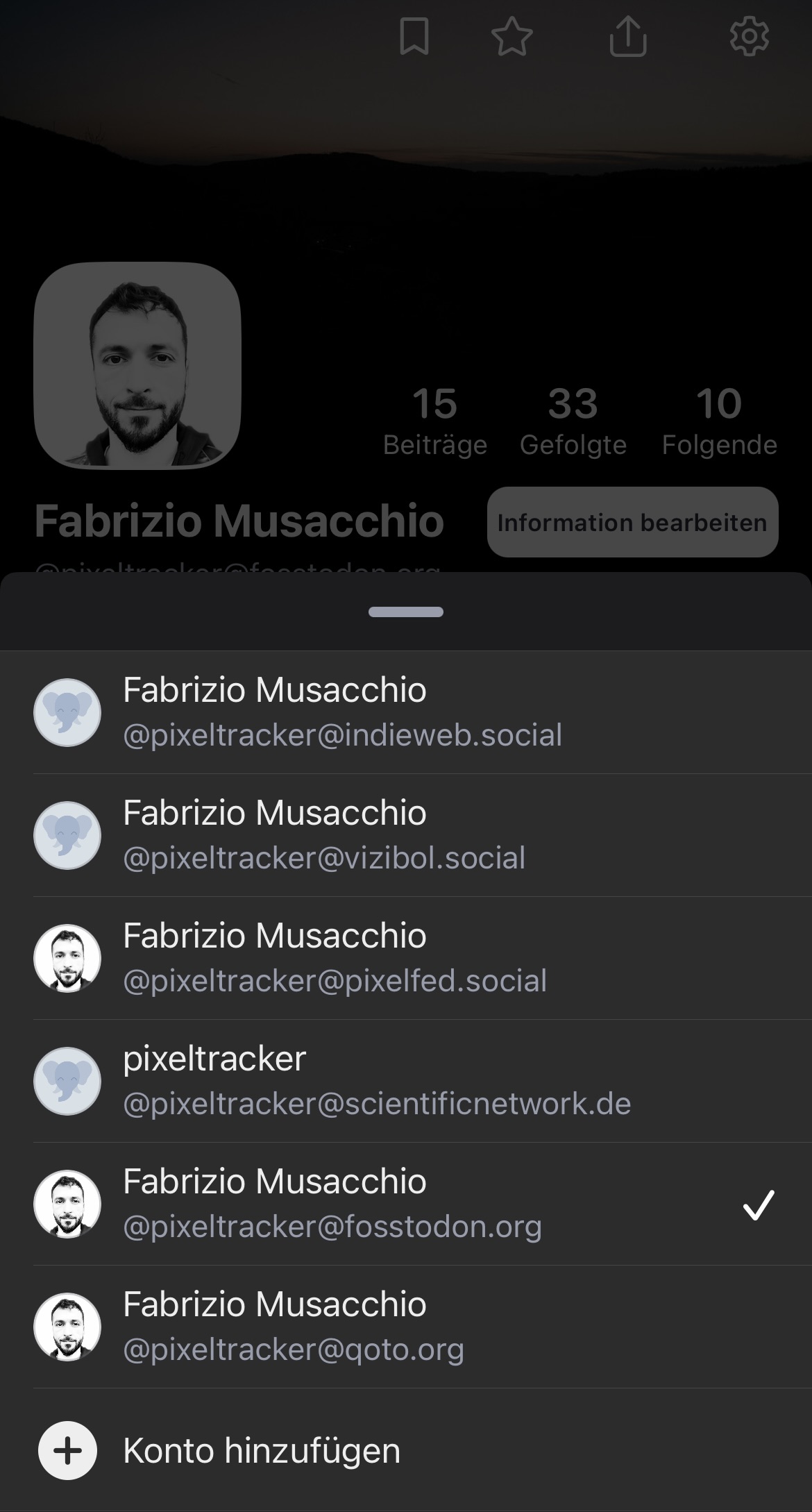
I’m just kidding. As stated above, I simply wanted to try different servers and I found one that suits me perfectly: sigmoid.socialꜛ6. It’s a server on Artificial Intelligence. I wouldn’t recommend new users to proceed as I did. The only thing that you definitely should do, before you join a server: Read the server’s about and description (if available). It’s not just an account that you open up there. You will join a community. Of course, you can completely ignore the local timeline and just address the content of your posts to the federated main stream. It’s up to you, how you’d like to use Mastodon. But hopefully the next paragraph makes it a bit more clear what it means for the local community and the maintainer of the server, when you join a local Mastodon instance.
 I’m on sigmoid.socialꜛ6, a Mastodon server on artificial intelligence.
I’m on sigmoid.socialꜛ6, a Mastodon server on artificial intelligence.
The Fediverse fully relies on its users
Mastodon servers are (usually) all hosted privately. And hosting a server as well as maintaining a local Mastodon instance produces monthly costs that have to be covered.
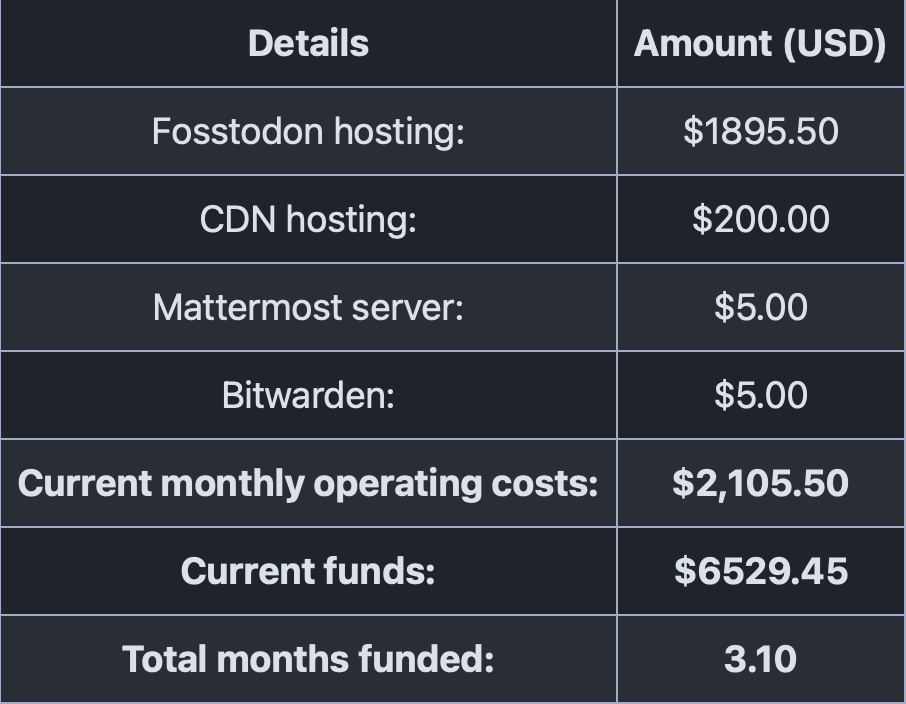 As an example, the monthly operating costs of Fosstodon.orgꜛ (as of November 23, 2022).
As an example, the monthly operating costs of Fosstodon.orgꜛ (as of November 23, 2022).
Established social media services, on the contrary, seem to be free of charge – at first glance. We indeed pay for services like Facebook, Twitter, Instagram, just the currency is not that obvious: It’s our personal data. And the tech-giants make money out of it7,8, either via direct advertising or by reselling our data to third parties. Mastodon pursues a different conceptꜛ: It hasn’t implemented any monetization strategies. If they are not backed-up by an institution or a company, the servers rely on active crowdfunding from their users, e.g., via Patreon, PayPal or similar donation solutions. So if you want to support the server that hosts your account, check if it offers options to donate. In this way you contribute to maintaining your server and keeping the Fediverse alive.
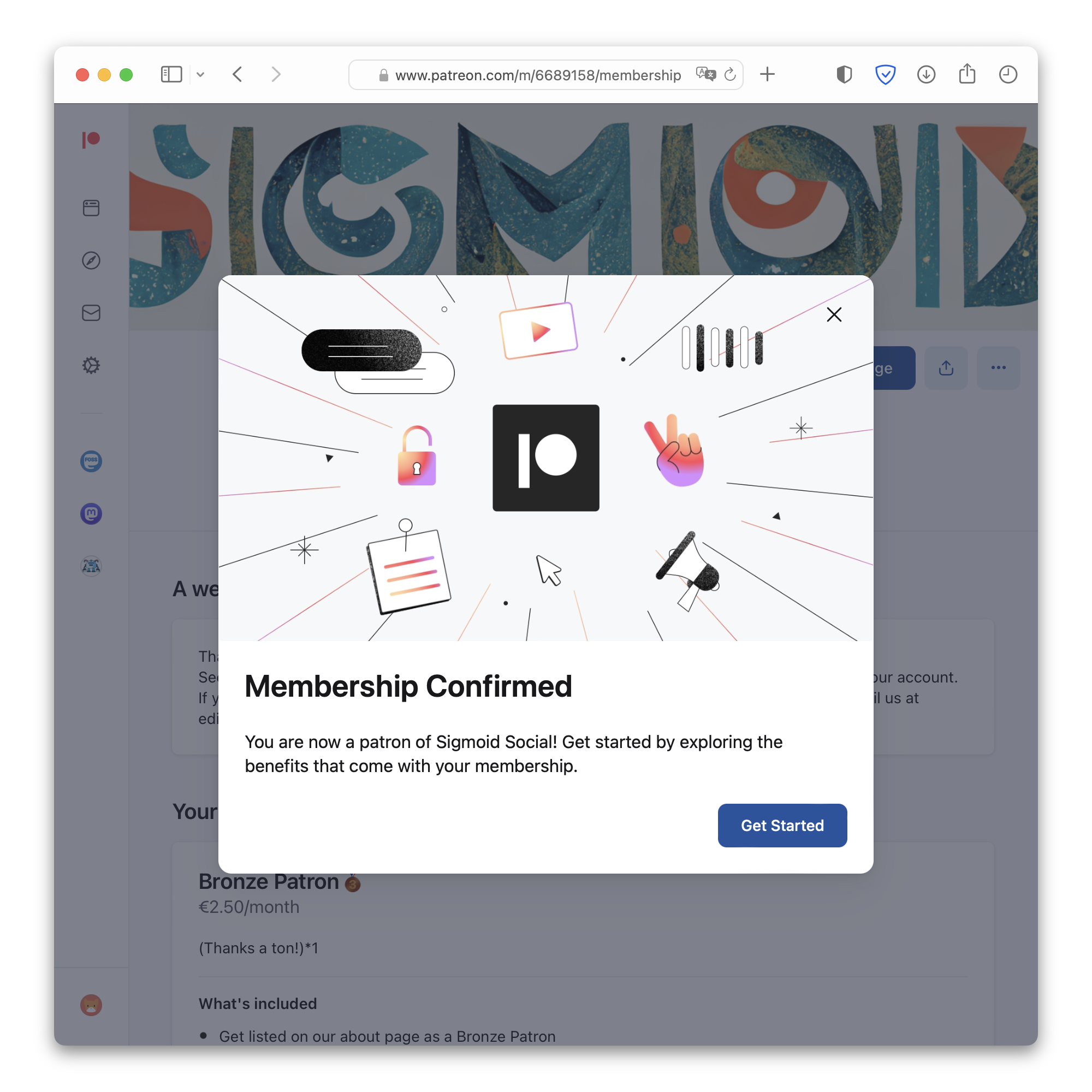 I decided to support my Mastodon instance via Patreon6.
I decided to support my Mastodon instance via Patreon6.
That’s it so far. If you’d like to dive deeper into the Fediverse as well, I’ve prepared a list of useful Mastodon links in this follow-up post.
Update April 2023
I recently rejoined Twitterꜛ with what you could call a “ghost” account. However, don’t worry, I won’t be leaving Mastodon. While many major Twitter accounts that provide me with important information for my scientific work, such as announcements for upcoming conferences, events, and new publications, are not on Mastodon yet, I’ve decided to use the Twitter account solely to keep track of the news feed. As soon as the mainstream turns its back on Twitter, I close my account there again.
Footnotes
-
https://www.theguardian.com/world/2018/dec/20/trains-on-time-germans-deutsche-bahn-railway ↩
-
https://www.thelocal.de/20220818/a-disaster-how-did-train-travel-in-germany-get-so-bad/ ↩
-
https://www.dw.com/en/why-germans-love-to-complain-about-trains/a-47441119 ↩
-
https://www.dw.com/en/german-train-delay-scarf-sells-for-thousands-at-auction/a-47080140 ↩
-
https://soundcloud.com/brandonmusicofficial/deutsche-bahn-zugverspatung-brandon-club-edit ↩
-
I was initially on Fosstodon.orgꜛ, but I switched the instance after one month and I’m now on sigmoid.socialꜛ. I’m also supporting this instance. ↩ ↩2 ↩3
-
https://www.techadvisor.com/article/745709/this-is-how-much-money-facebook-earns-from-your-data-each-year.html ↩
-
https://www.privacytrust.com/blog/how-facebook-makes-money-from-personal-data.html ↩


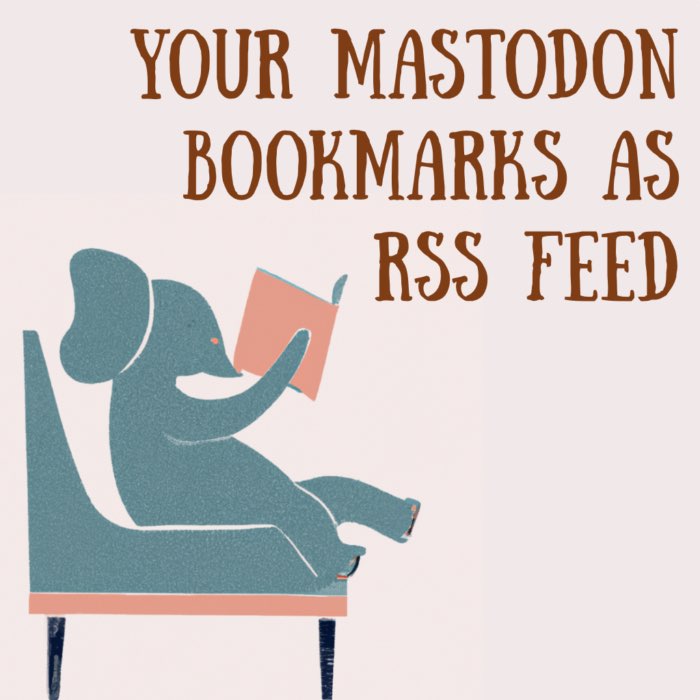

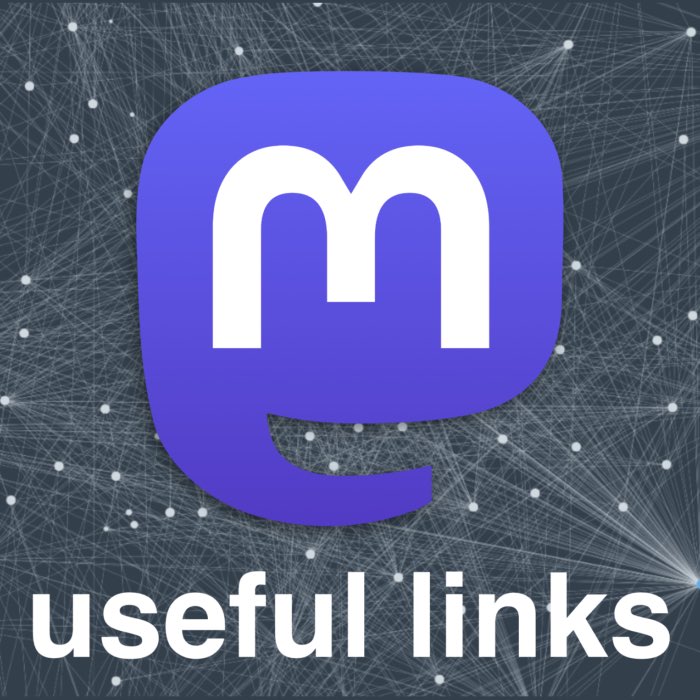



comments